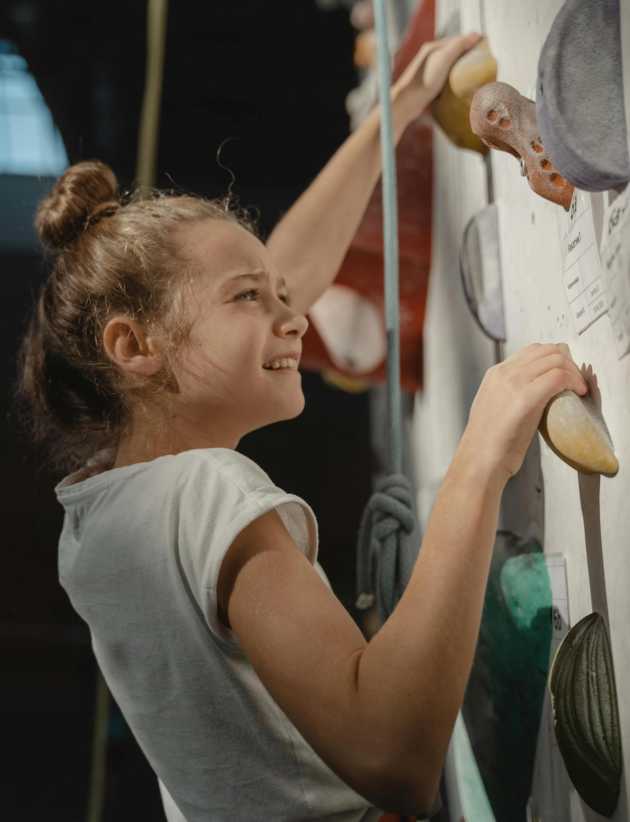
Living in a creative city like New York can open doors to amazing opportunities in the music world. As the home to some of the most revered and respected musicians, music programs, and music halls, the city can inspire people of all ages to start making beautiful music of their own.
Research has shown that the benefits gained from learning to play an instrument are many, especially in very young musicians, down to age 3. These benefits have been shown to cultivate essential life skills that help these little musicians excel academically, socially, and psychologically. We spoke with some of New York’s leading musical and psychological experts to hear more about how learning to play a melody can lead to life-long success.
Academic Benefits
One of the most incredible things about a child’s study of music is that by learning to play an instrument, he or she has mastered learning another language. For ambitious young musicians, this type of intelligence comes almost naturally, as their native language development is still in its early stages. It is much more difficult for an adult to achieve fluency in a different language than a child, which is why many bilingual parents choose to teach their toddlers both languages while that part of their brain is developing.
This methodology relates to musical ability as well, says Lisha Lercari, the director of Music and the Brain (MATB), a non-profit program that offers public school students the tools to learn and play music through classroom keyboard instruction. “Three- to 5-year-old students are the most advanced kids of any level,” Lercari says. “They get through their books the quickest and retain what they are learning.”
Learning music can also spark a child’s curiosity, and a subsequent long-term love of learning.
“Learning something new, such as how to play an instrument, can encourage and excite curiosity in young students,” says Julie Rulyak, executive director of the Turtle Bay Music School. Encouraging small children to embrace their natural curiosity is a crucial learning technique that will enhance all aspects of their lives, including academic learning, as they will begin to question why things are the way they are.
“In some cases, some students have been practicing analysis, and they think about how they can do something better than the way they’ve been doing it,” says Scott Taylor, the Young People’s Division manager at the Lucy Moses School at the Kaufman Music Center. A child having the ability to self-analyze so early on in life shows a lot of sophistication and maturity, especially for toddlers. “Studying music causes young students to focus inward, because memorizing the music shows that they’ve really internalized and understood it,” Taylor says. This skill can virtually be applied to anything that the child will learn in life, especially in the academic realm.

Disciplinary Benefits
The skills children develop when learning how to play, and eventually master, an instrument, become instilled in their memory, and directly correlate to better academic study skills and methods of learning.
“The process that kids go through while learning how to play music has a direct effect on their ability to pay attention and to attend to tasks much more quickly than kids who don’t,” says Lecari. “It is because of what you have to do when playing music. It gets you prepared to pay attention, because you have to understand the music you’re listening to, and to gain the memory skills to actually remember all that you are learning.”
However, there is a caveat: These skills can only be mastered if the child has self-discipline. Taylor gives an example of two of his students who started their musical practice at the ages 4.5 and 5.
“The students, who are siblings, wake up early and practice their instruments for half an hour before school each day,” Taylor says. “By the time they get to school, they are ready to go, they are not entering groggy and waking up later during class because the process of playing music has already awakened their brains.”
Children who have been playing an instrument from a young age tend to be self-disciplined and responsible. If a child has started playing music by age 3, he or she has been taking that instrument out of its case every day to practice for years before reaching a grade level that expects them to complete a heavy workload and manage their time. Overcoming these challenges is much more feasible when a child has been “practicing” those values for years.
“There are endless disciplinary benefits from learning to play music, especially from a young age, because learning to work through a piece of music teaches [kids] how to work through challenges in a consistent way,” says Dr. Joshua Brown, PhD, assistant professor in the department of psychology at Fordham University Rose Hill, as well as an NYC dad with two cello-playing sons.
Kirsten Morgan, executive director at the Diller-Quaile School of Music adds: “Over time, [children] develop purposeful focus, critical thinking and problem solving skills, self-discipline, perseverance, and resilience through studying an instrument.”
Psychological Benefits
Mastering the capability to display one’s emotions and express oneself through words is something that many children struggle with. Brown, who has studied early childhood development, notes: “It is a highly valuable thing for kids to learn a way of expressing themselves through a language that is not spoken, because it provides a channel for a child to express him or herself in a way they might not be able to do through other forms of communication.”
When young children learn how to play a musical instrument, there are added social and emotional, as well as psychological benefits. “There are very direct benefits from encountering these challenges and dealing with them in a consistent way: The opportunity to learn about themselves as learners, learning how they can best marshal their attention, and learning how they can keep their frustration in check when they are challenged,” Brown adds.
Thus in this respect, playing an instrument at a young age helps these children start the process of self-discovery many years before most even begin considering their true interests and the way they learn best. Similarly, it allows them to have confidence in themselves, especially when facing a difficult task. “Music, more so than other recreational activities, teaches them to push through challenges and gain a sense of themselves, while also showing them that they have the ability to master something difficult,” Brown says.

Social Benefits
Music has long been credited for bringing people together, and Rulyak’s experience at the Turtle Bay Music School shows that this still very much the case. “In our programs here at the school, families are absolute participants in their child’s music education,” Rulyak says. “We have families who come every week to hear the kids play and see what they’ve been learning. We have different workshops that can create bonds between parents, siblings, and cousins as they work together to learn a piece. Then when they go home, I have no doubt that they take the time to practice together.”
Young music students are introduced to many different types of relationships as they continue with their musical practice. They must learn how to work together with others, whether it’s their music teachers, other ensemble or group lesson members, and their parents and families with whom they may practice at home.
“The parent is instrumental in a young child’s musical studies,” Taylor says.
When small children learn a musical instrument, it can benefit the entire family, as music study and family support become intertwined.
“Creating a strong family support system can be really transformational in what a child gets out of music, and other areas of life, and how well they can excel in what they are learning,” Rulyak says.
For a list of great music programs in NYC, click here.














